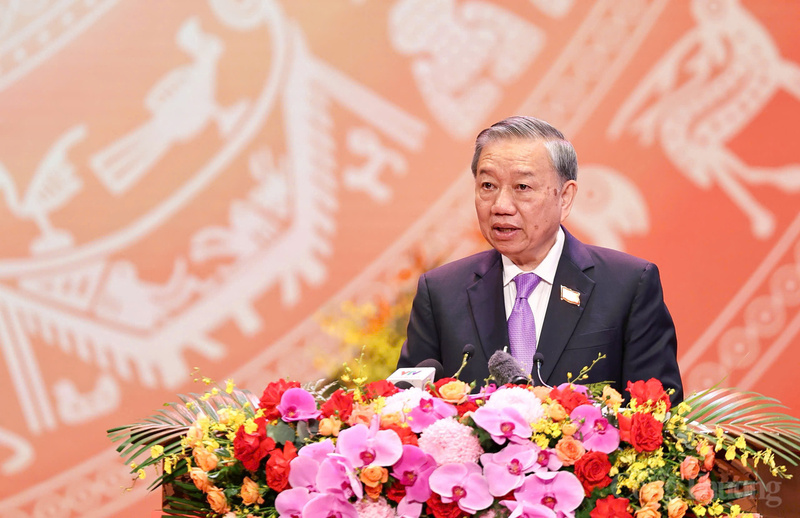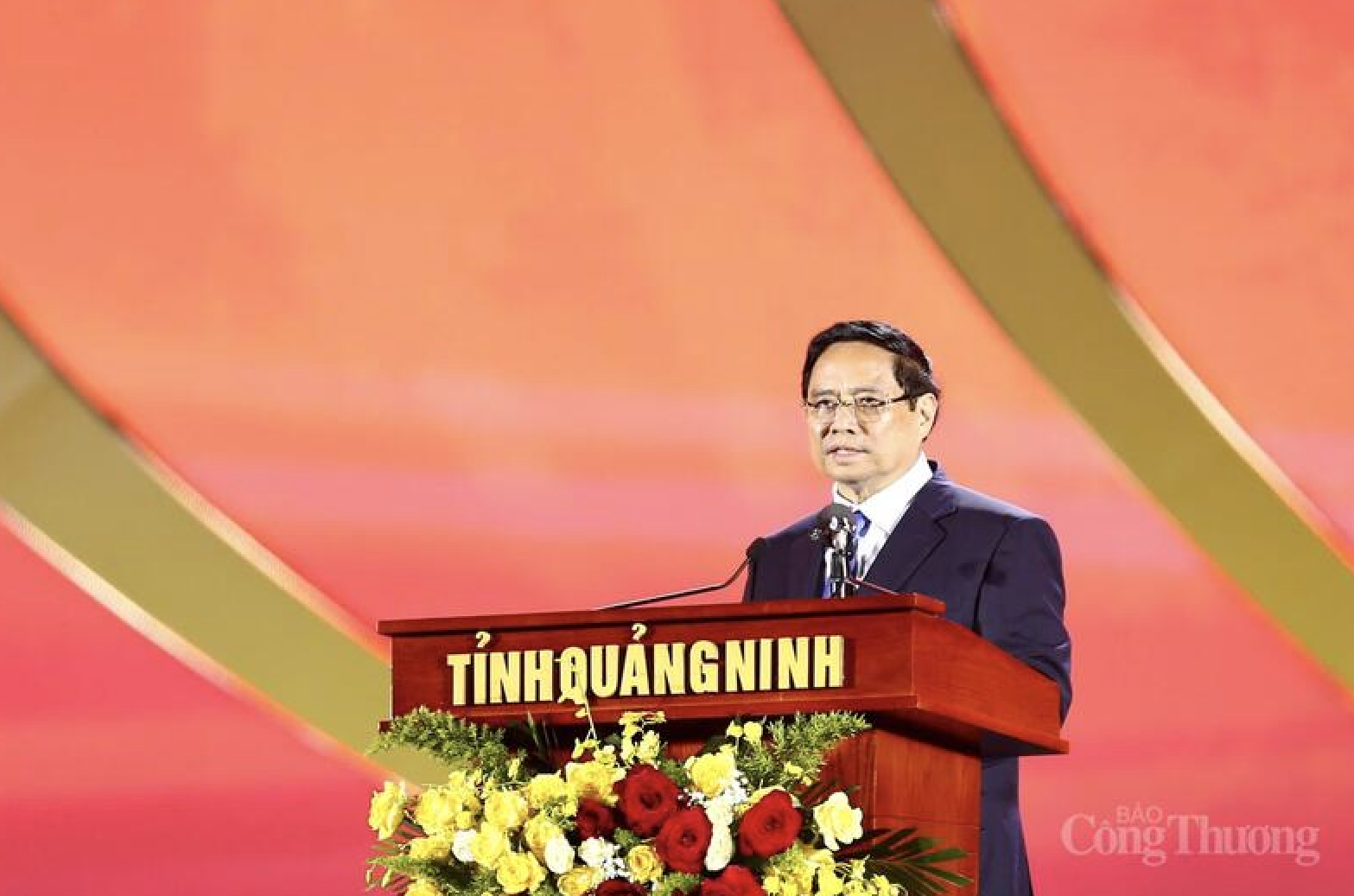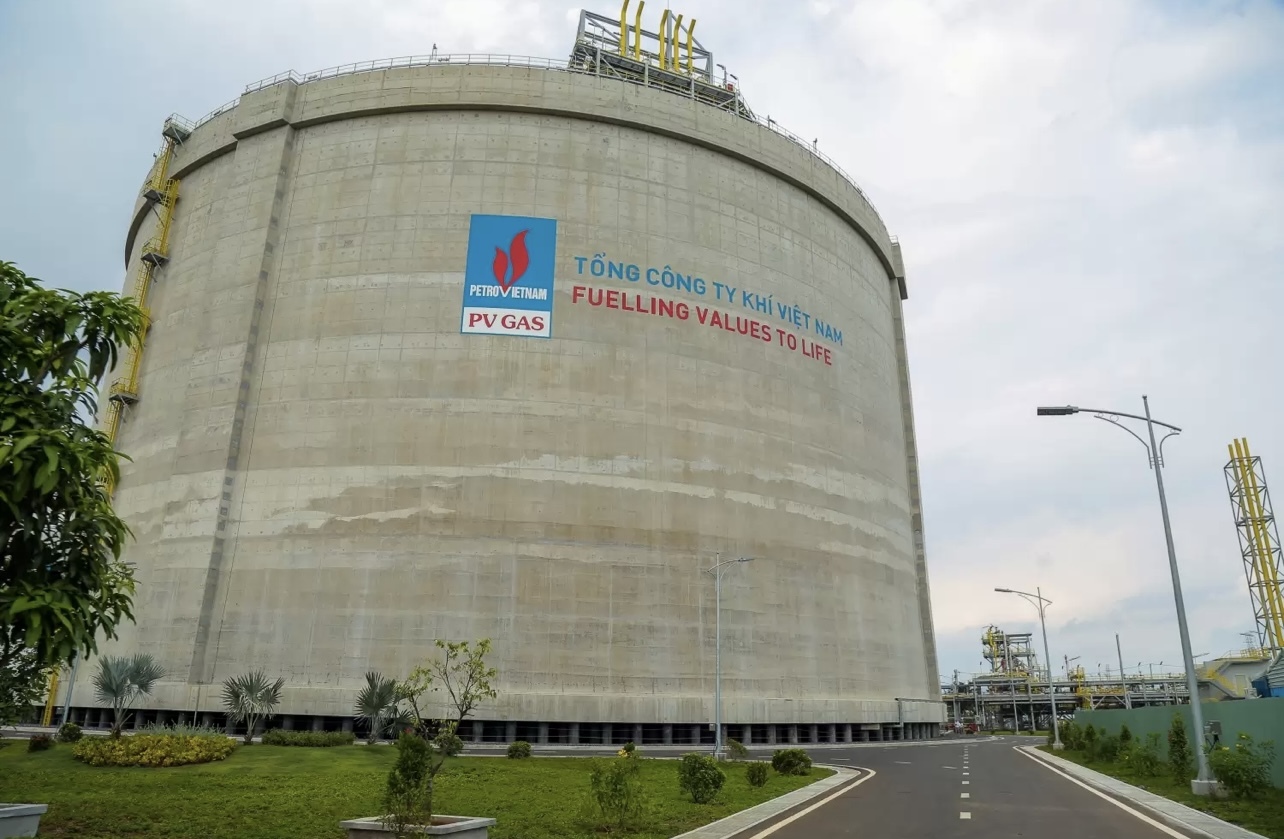
Vietnam’s leaders attend ceremony marking 80th anniversary of government
19:05 | 23/03/2025 17:07 | 20/08/2025News and Events
The press conference was chaired by Pham Thanh Ha, Vice Chairman of the Office of the President. Also in attendance were Hoang Xuan Chien, Deputy Minister of National Defence; Senior Lieutenant General Le Quoc Hung, Deputy Minister of Public Security; Nguyen Danh Huy, Deputy Minister of Construction; Pham Quang Dung, Deputy Governor of the State Bank of Vietnam; Le Xuan Dinh, Deputy Minister of Science and Technology.
Establishing a legal framework for the digital technology industry
At the press conference, presenting the key contents of the Law on the Digital Technology Industry, Deputy Minister of Science and Technology Le Xuan Dinh emphasized that the law aims to establish a specialized legal framework, ensuring strong and breakthrough preferential policies to develop the digital technology industry—one of the country’s foundational and specialized sectors.

The law aims to position Vietnam as a regional and global hub for the digital technology industry; develop a number of strategic digital technology enterprises and industrial sub-sectors where Vietnam has strengths, such as semiconductors and artificial intelligence; and create breakthroughs in science, technology, innovation, and national digital transformation.
According to the Ministry of Science and Technology, Vietnam has become the first country in the world to enact a dedicated law on the digital technology industry. For the first time, new concepts such as digital technology, digital technology industry, semiconductor industry, artificial intelligence, and digital assets have been formally defined in a law. “The law includes comprehensive regulations, preferential policies, and support mechanisms necessary to foster the development of the digital technology industry", Deputy Minister Le Xuan Dinh said.
The law consists of six chapters and 61 articles. According to the ministry, it focuses on eight key areas, including promoting and supporting research and development in digital technologies; attracting and developing human resources for the digital technology industry; and concentrating resources on developing infrastructure for this sector.
The law also sets out policies for developing the semiconductor industry; provides incentives and support for investment in digital technology activities; includes provisions for the governance and promotion of artificial intelligence; fosters innovation through a mechanism for piloting digital technology products and services; and establishes a legal framework for developing and managing digital assets.
New features in the 2025 law on atomic energy
Regarding the 2025 Law on Atomic Energy, Deputy Minister Le Xuan Dinh noted that the updated law includes many new features compared to the 2008 version and was developed based on four major policy pillars previously approved by the National Assembly and the Government.
Specifically, the law promotes the development and socialization of atomic energy applications; ensures radiation safety, nuclear safety and security, and decentralization in state management; facilitates nuclear inspection activities; and provides for the management of radioactive waste, spent radioactive sources, and spent nuclear fuel, as well as the response to radiation and nuclear incidents and the issue of civil liability for nuclear damage.
The 2025 Law on Atomic Energy was adopted at the ninth session of the 15th National Assembly on June 27, 2025, with 441 out of 442 votes in favor. The law contains eight chapters and 73 articles—20 articles fewer than the 2008 version, representing a reduction of more than 20 percent. It stipulates regulations on the development and application of atomic energy; radiation safety and protection; nuclear safety and security; nuclear power plants and research reactors; response to radiation and nuclear incidents; compensation for radiation and nuclear damage; nuclear inspection; and state management in the atomic energy sector.
No proposals from railway investors beyond legal framework
At the press conference, in response to media inquiries concerning the Railway Law, Deputy Minister of Construction Nguyen Danh Huy said the Ministry had received investment proposals from several parties interested in the North–South railway. “We have asked these investors to complete the necessary procedures and are closely coordinating with the Ministry of Finance to carefully assess the investment benefits. We have also developed evaluation criteria and sent official documents to interested investors,” he emphasized.
The Deputy Minister also stated that all investors have complied with current regulations, and no proposals have exceeded the boundaries of the existing legal framework.
Regarding the newly adopted Railway Law, the Ministry of Construction said the law is intended to institutionalize the policy directions of the Party, especially the “strategic quartet” of Resolution 57, Resolution 59, Resolution 66, and Resolution 68. These aim to develop railway infrastructure, industry, and transport systems to meet the country’s industrialization and modernization goals, while also addressing obstacles and inconsistencies in the practical implementation of railway development and operations in recent years.
Accordingly, the 2025 Railway Law was developed based on five guiding principles: continuing to institutionalize the Party’s policies on improving the legal framework and development strategies for the railway sector; ensuring compatibility with international railway treaties to which the Socialist Republic of Vietnam is a party and selectively adopting international best practices; refining regulations by retaining suitable provisions from the 2017 Railway Law while amending or supplementing outdated ones; strengthening decentralization in railway operations; and maximizing resources for railway infrastructure investment and development.
In addition to the Law on Atomic Energy, the Law on the Digital Technology Industry, and the Railway Law, the Office of the President also announced the promulgation of several other laws on the afternoon of July 11. These include the Law Amending and Supplementing a Number of Articles of the Law on Standards and Technical Regulations; the Law Amending and Supplementing a Number of Articles of the Law on Product and Goods Quality; the Law on Science, Technology and Innovation; the Law Amending and Supplementing a Number of Articles of the Law on Credit Institutions; the Law on Personal Data Protection; and the Law on Participation in United Nations Peacekeeping Operations.

19:05 | 23/03/2025 17:07 | 20/08/2025News and Events

19:05 | 23/03/2025 11:20 | 18/08/2025News and Events

19:05 | 23/03/2025 21:36 | 17/08/2025News and Events

19:05 | 23/03/2025 15:55 | 17/08/2025Industry

19:05 | 23/03/2025 15:20 | 17/08/2025Society